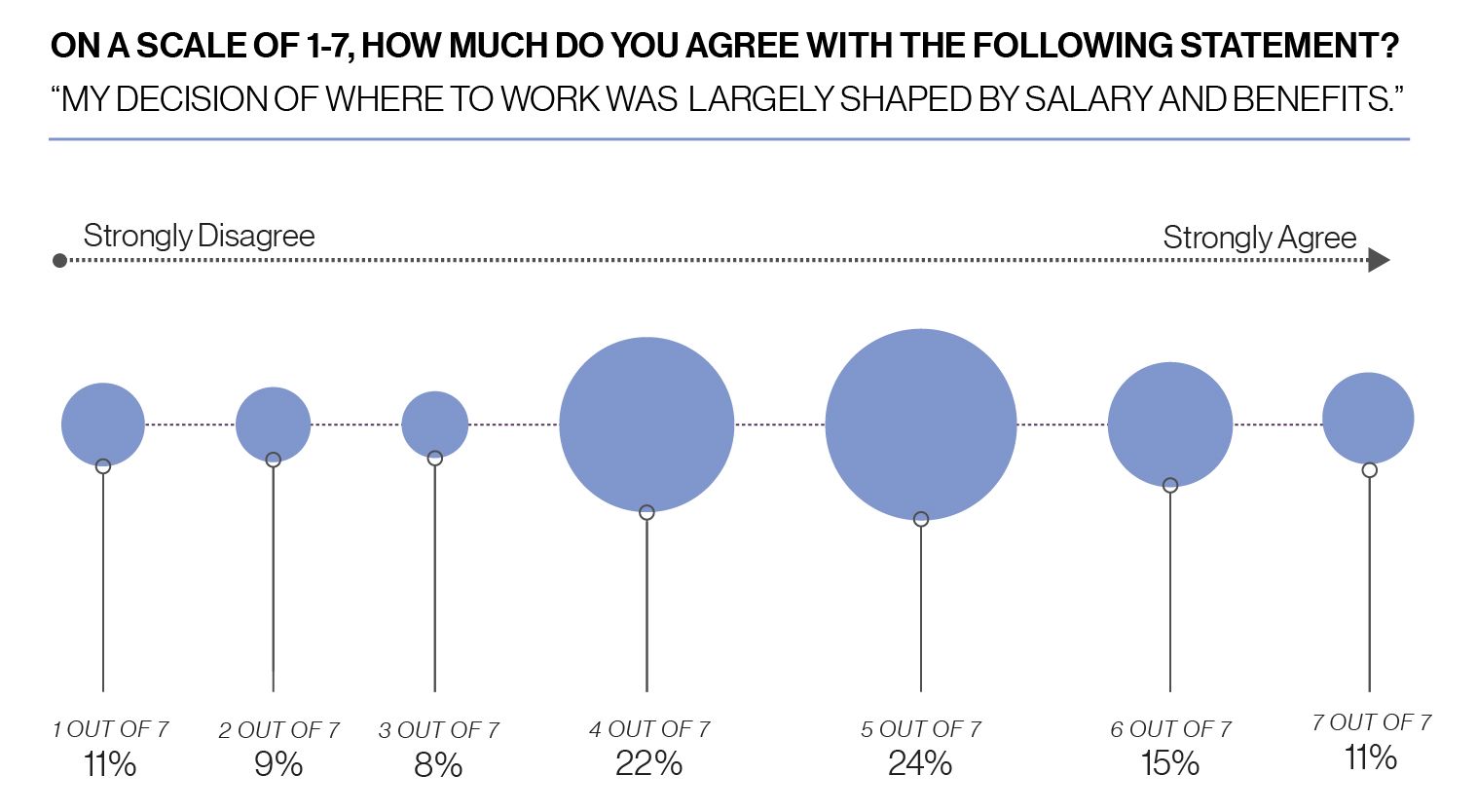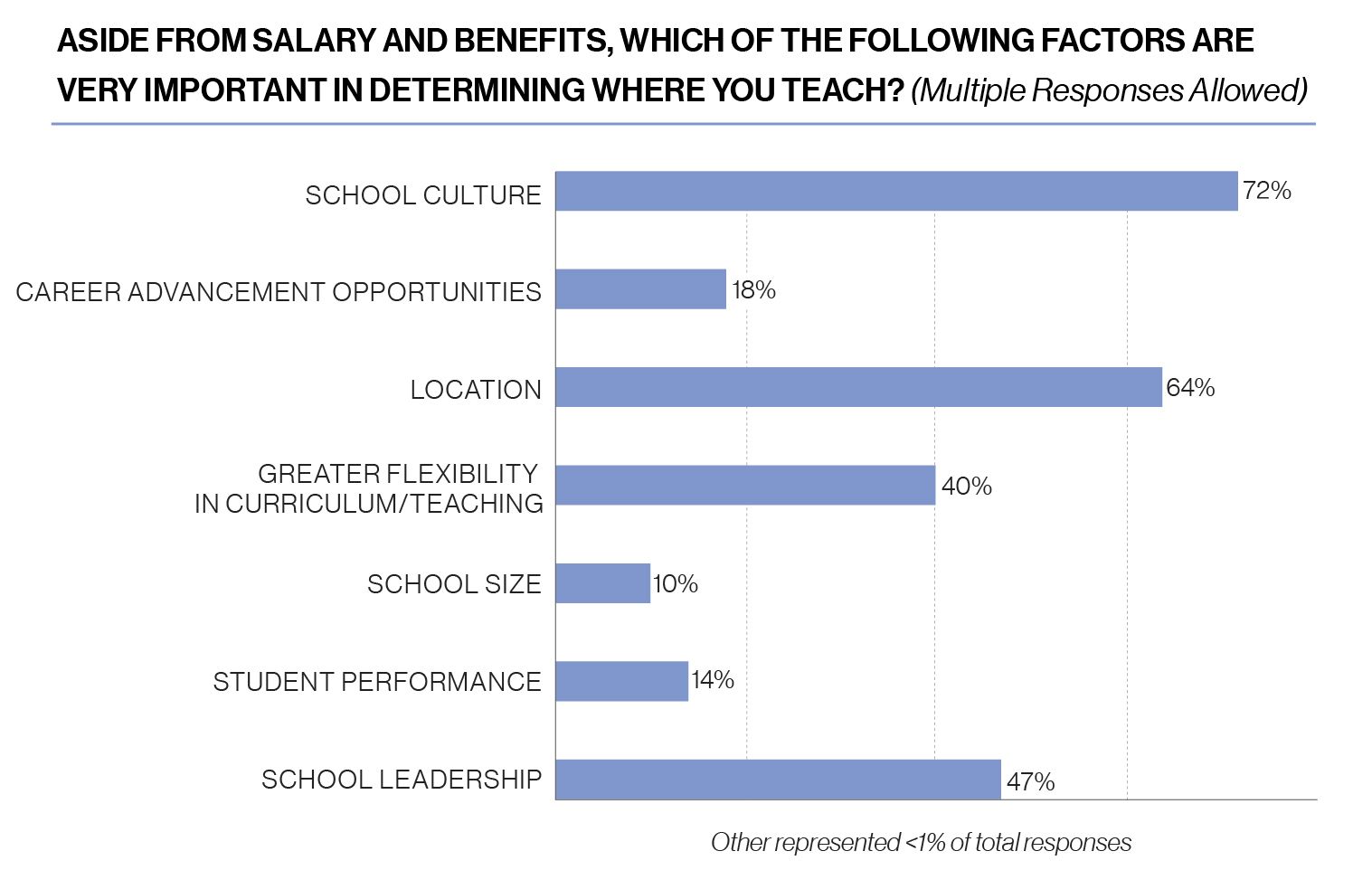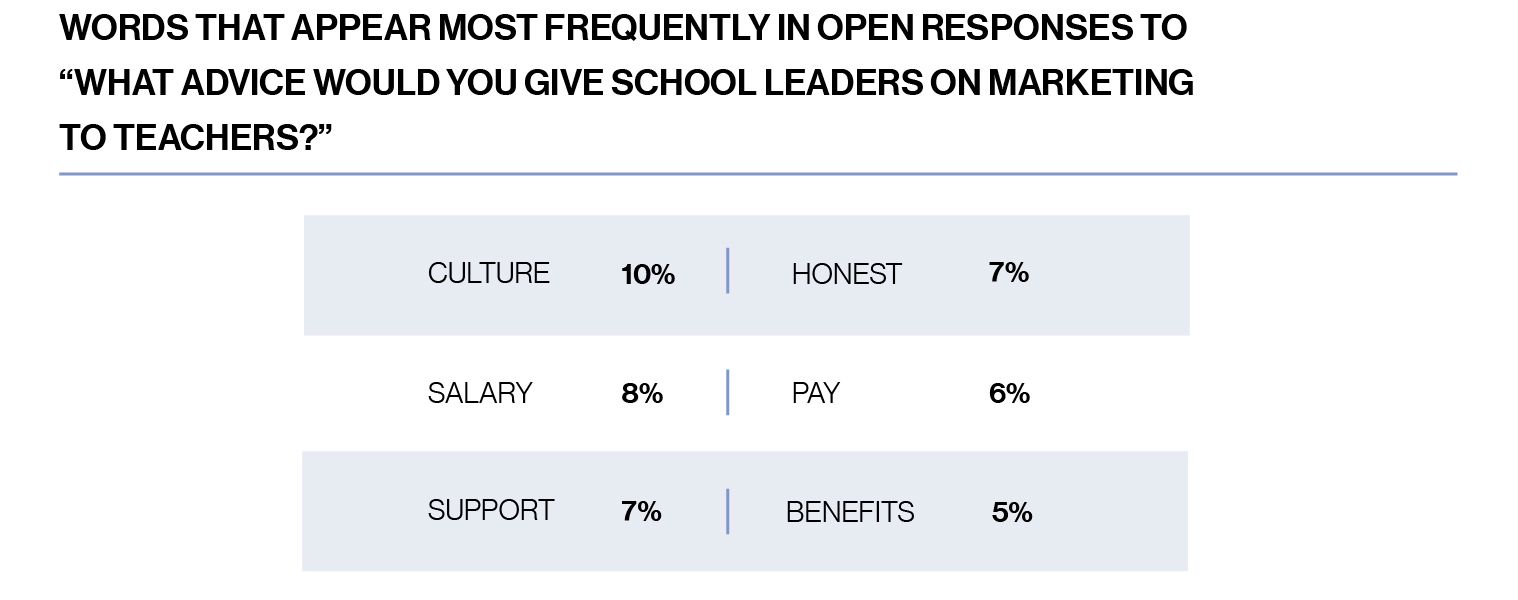Millennial teachers crave a positive culture, sometimes over pay.
As part of our extensive look into this new hiring pool, we asked 1,000 millennial teachers what most shaped their decisions when choosing where to teach.

Historically, educators aren’t driven by their paychecks. On average, teachers today still earn about 19% less than similarly skilled and educated professionals in other fields. And, because of inflation, teacher pay increases over the past decade have been eroded to virtually nothing, with average salaries actually decreasing by 3% nationally. Nevertheless, only 20% of teachers leave the field because of low pay, according to the Learning Policy Institute.
So what’s keeping new, young teachers in education?
As part of our extensive look into this new hiring pool, we asked 1,000 millennial teachers—a statistically significant sample of the estimated 1.2 million nationwide—to rate the following statement on its validity using a scale of 1-7: “My decision of where to work was largely shaped by salary and benefits.”

The numbers suggest that while salary and benefits do factor into decision-making for millennial teachers, they aren’t dealbreakers. Only 26% of those surveyed answered 6 or 7, indicating that salary was critical in their decision-making. More than half responded moderately with 3, 4, or 5, and about a fifth indicated that salary didn’t really matter by selecting 1 or 2. While salary is certainly important, our research suggests that other factors weigh just as heavily in millennial teachers’ decision-making.
What are those other factors? Given a list of school characteristics, we asked those surveyed to select up to three factors that are very important when determining where to teach. The most common answer was school culture, followed by location, school leadership, and flexibility, respectively.

This ranking held true in teachers’ open responses as well. As part of the survey, teachers were given the option to answer the question, “What advice would you give school leaders on marketing to teachers?” When we broke down their responses, words like “culture” and “support” were in the top six most frequently used words besides neutral words like “teacher” or “job”. “Culture” even ranked higher than “salary.” One teacher’s tip for administrators was, “Don’t market the position that needs to be filled; market the school and the culture.”

These results are consistent with millennial behavior across all sectors. In the private sector, creating a great culture has become an executive level position; many companies now hire chief culture officers. It makes sense—if millennials are finding their sense of purpose and impact at work instead of at home, they’ll want to be in a fantastic environment.
A major factor impacting a business or school’s culture, of course, is leadership. Nearly half of the teachers we surveyed listed school leadership as “very important” in deciding where to teach. A closer look revealed that open responses often paired the word “leadership” with “support” and “honesty.” One teacher asked for “better support during the first year... less promises and more honesty.” Another said, “It is important for me as a teacher to know the administration is there to support me, and that they care not only about student welfare, but about me being successful and happy as an educator.”
The word “culture” appears most frequently in open responses, and the overwhelming majority of millennial teachers cite it as an important factor in finding the right job (72%). Considering this, it’s pretty clear that school districts should be focusing largely on creating supportive, honest environments where students thrive and teachers want to stay.
If salary isn’t enough to draw new, young teachers into your schools—and it likely isn’t—then centering your marketing and teacher recruiting efforts on your culture, how you support your staff, and a commitment to transparency are key to finding and building the perfect team for your schools.

SchoolCEO is free for K-12 school leaders. Subscribe below to stay connected with us!

